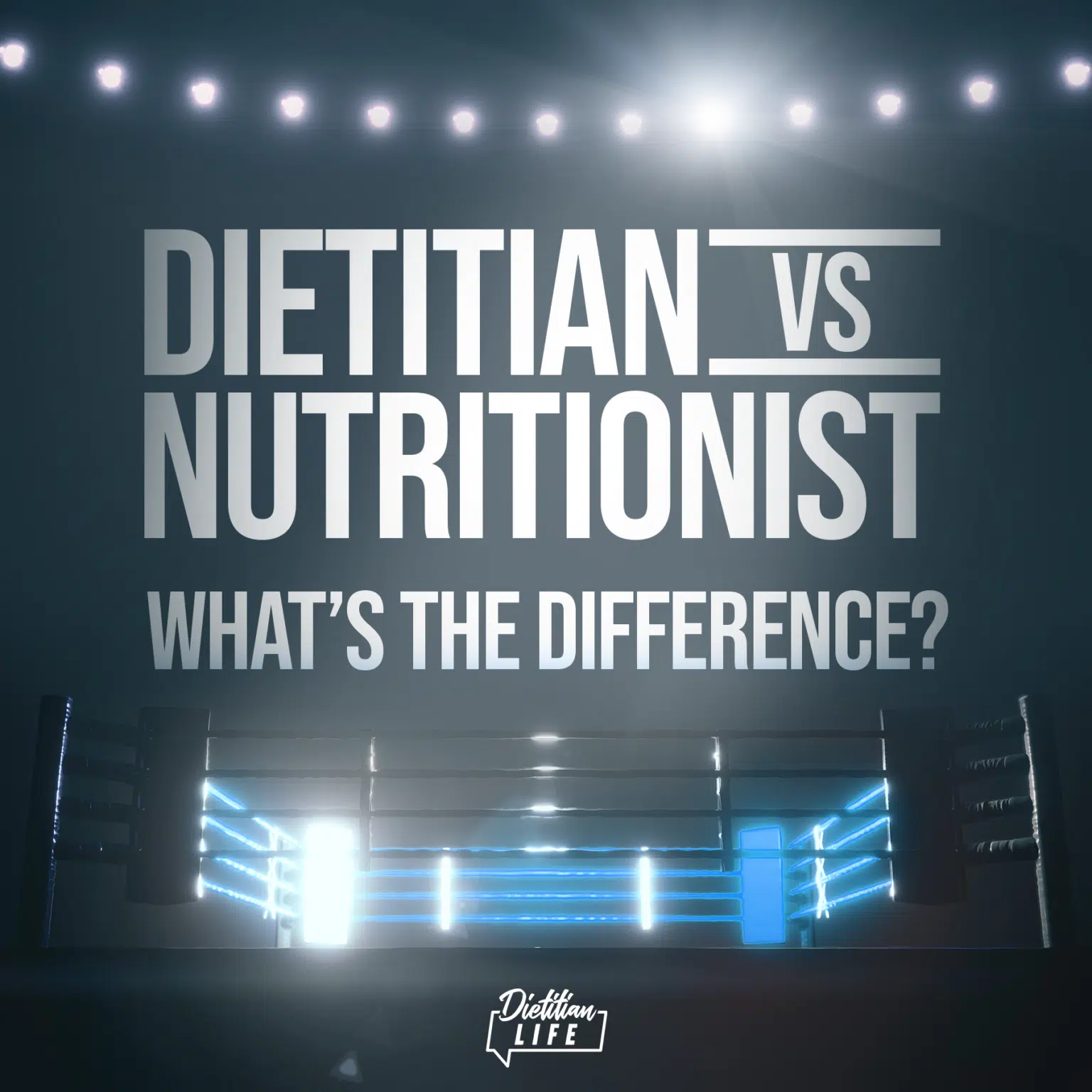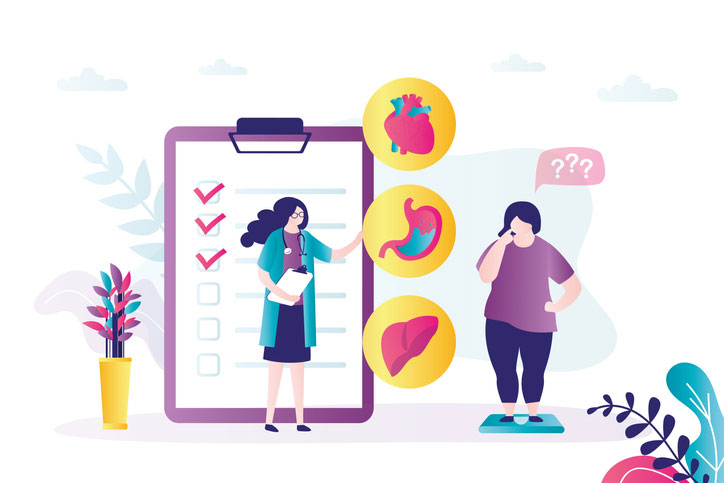All Categories
Featured
Table of Contents
-1
In the United States and several other countries, a dietitian is a board-certified food and nourishment expert. They are very enlightened in the field of nutrition and dietetics the scientific research of food, nutrition, and their impact on human wellness. With considerable training, dietitians obtain the experience to give evidence-based clinical nourishment treatment and dietary therapy tailored to fulfill a person's needs.
-1To make clear, the qualifications of RD and RDN are compatible. Nonetheless, RDN is an extra recent classification. Dietitians can pick which credential they prefer to make use of. To make these credentials dietitians-to-be need to first make a bachelor's degree or comparable credit scores from a certified program at a college or university. Commonly, this needs an undergraduate science level, consisting of training courses in biology, microbiology, natural and inorganic chemistry, biochemistry, makeup, and physiology, along with more specific nourishment coursework.
Achieve Weight Loss Goals – Swan 6056
-1This allows them to evaluate intense needs, focusing on deadly problems. Inpatient and outpatient dietitians also give nourishment education and learning to individuals with specialized needs, such as those newly out of surgical treatment, in cancer therapy, or diagnosed with chronic ailments like diabetes mellitus or kidney condition. In the outpatient setting, they provide much more thorough dietary counseling functioning towards a nutrition-oriented goal.
-1Research study dietitians normally function in research hospitals, companies, or universities. As soon as dietitians have actually gained their credentials and are functioning in the area, they can go on to specialize in a specific subcategory, such as pediatrics or sporting activities dietetics.
-1They may furthermore instruct in an academic or research establishment or blog about nutrition-related subjects. Others may work as wellness and nourishment experts in media or as speakers. Dietitians are certified to handle nourishment therapy throughout a span of intense and chronic conditions. The sort of problems they treat depends most on the setup of their practice.
Vegetarian Nutritionist (Jane Brook )
-1In lots of states, such as Alaska, Florida, Illinois, Maryland, Massachusetts, and Pennsylvania, RDs and CNSs are provided the same state permit, typically called a Licensed Dietitian Nutritional Expert (LDN) license. In states that don't regulate the usage of this term, anybody with a passion in diet or nourishment may call themselves a nutritional expert.
-1Nonetheless, since uncredentialed nutritional experts typically lack the know-how and training for medical nourishment therapy and nutrition therapy, following their suggestions might be considered damaging (). Prior to speaking with a nutritionist, you might want to check whether your state controls that may utilize this title. In the U.S. states that do not regulate the term, no degrees or credentials are required to be a nutritionist.

-1
In states that do mandate licensure, the CNS or RD credential might needed. Those with CNS qualifications are health and wellness experts like registered nurses or doctors with innovative health levels who have sought out additional coursework, finished monitored method hours, and passed a test looked after by the Board for Qualification of Nourishment Specialists.
-1While some of these approaches might have robust scientific support, others might not. Providing nutrition suggestions without the correct expertise and training can be harmful, especially when counseling those with health and wellness conditions. If you are thinking about getting in touch with a nutritionist, you might want to ask if they are a CNS or have state licensure or accreditation, or one more credential.
Sports Nutritionist – Swan
-1Several states specifically manage this term. Additionally, nutritionists might pursue a sophisticated CNS qualification.
-1It can be challenging to help people make genuine, lasting changes in their lives. Both dietitians and nutritionists give a variety of nutrition-based solutions to clients.
-1They need to have finished some degree of education and learning in their area. They are also called for to have actually finished as much as a year of supervised job, functioning within a directed program at a medical care center, providing organization, or area body. Dietitians have far better assumptions put on their abilities and degree of professionalism.
-1This indicates that there is no body that oversees their certifications and no specifically rigorous guidelines that nutritionists requirement to follow in order to be able to practice. Dietitians, on the other hand, are registered with country wide recognised bodies, such as the Dietitians Organization of Australia. They must follow the National Proficiency Standards for Dietitians.
Clinical Nutrition Counseling (Jane Brook 6056)

-1
Nonetheless, you can practice as a nutritional expert without the exact same level of accreditation as a dietitian. Nutritional expert programs can differ in length and top quality, with some as brief as six weeks and covering much less material than a dietetics course. Relying on your education carrier, you can obtain a considerable quantity of expertise with studying a straightforward nourishment program; nevertheless it is necessary to explore the training course material prior to commencing.
-1This can consist of attending sector workshops or reading industry publications. Nutritionists, on the other hand, typically gain their qualifications in order to supplement various other certifications and give better guidance to their customers. Nutritionists can acquire work in a wide variety of fields, consisting of public health suggestions, recommendations for people, and collaborating with personal organisations.
-1Nutritional experts can work with showing off organisations, gyms, colleges and advise media electrical outlets on fundamental terms and proper usage of terms. Dietitians can function in many of the exact same roles as nutritionists.
Qualified Nutritionist – Swan 6056
-1Dietitians often function with more medically delicate clients. Because of the high level of expertise called for to supply solutions to these individuals, just certified dietitians are permitted to provide treatment.
-1In Australia there is a distinction in between a dietitian and various other dietary health providers consisting of nutritional experts. All dietitians are nutritionists, however nutritionists without a dietetics credentials can not call themselves a dietitian.
-1Dietitians with the Accredited Practising Dietitian (APD) credential dedicate to continuous training and education and learning throughout their jobs. As a profession, nutritionists are not managed in Australia under NASRHP or licensed under a single regulative body.
Nutritionist For Diabetes – Swan
-1If you have a persistent wellness condition and a care plan from your GP, you may be able to claim a Medicare rebate when you see an APD. The major purpose of individuals working in the occupation of dietetics is embodied in this declaration: The occupation of dietetics contributes to the promo of health and wellness and the avoidance and therapy of disease by optimizing the nutrition of populaces, communities and people. Certified Dietitian.
Latest Posts
Our Clinic
Eddie – Cockburn 6164
Tips To Find The Right Dietitian To Work With – Exmouth 6707